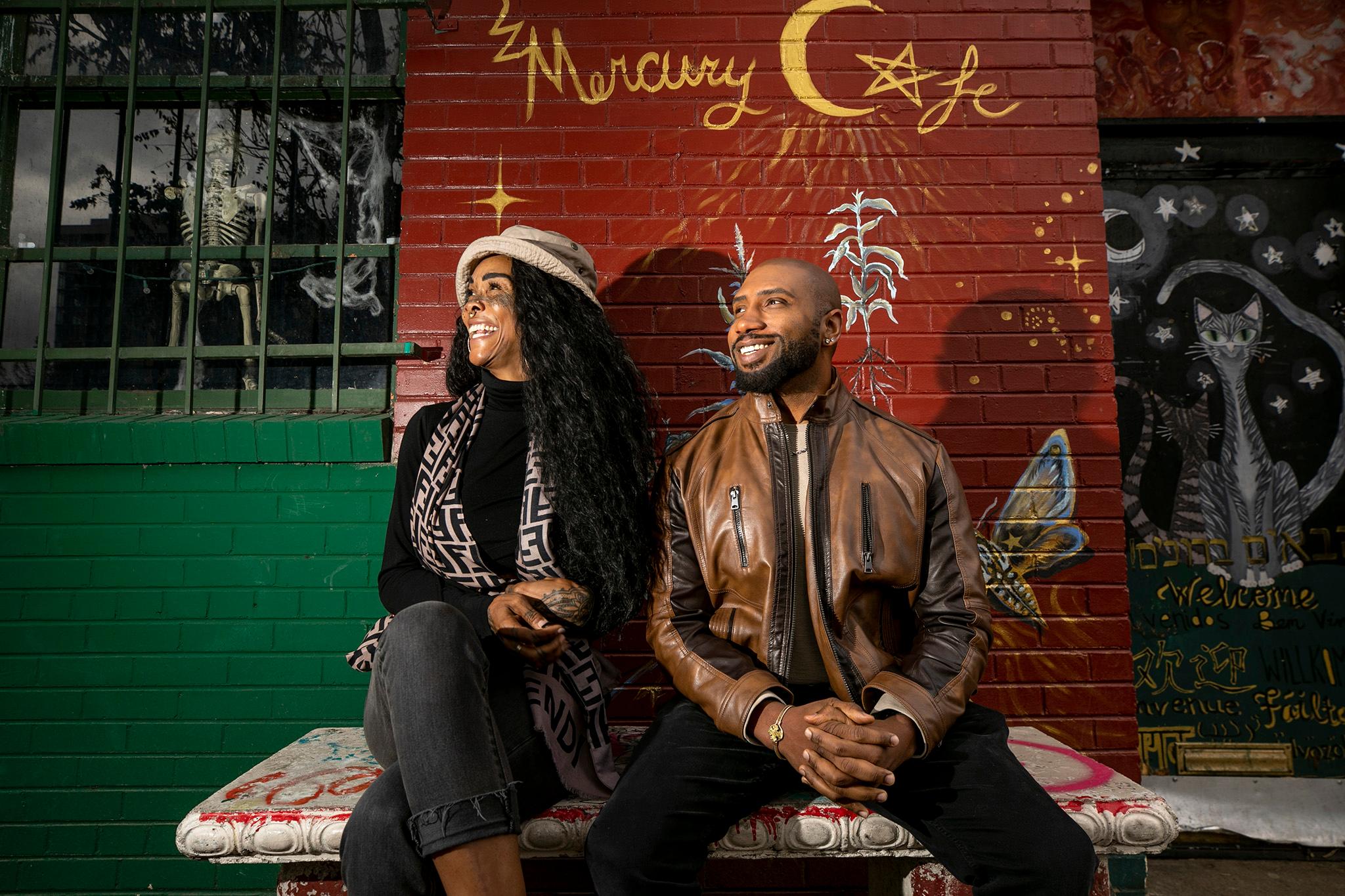When Aurora's inaugural and emeritus poet laureate, Jovan Mays, first moved to Colorado, he and his family settled in Denver's Park Hill neighborhood; his parents from New York, with his mom by way of Jamaica.
They were impressed by the "freshness" and "openness" of Colorado, and assumed this was where they could raise a family.
That was until a drive-by shooting happened a block down from where Mays' sister was riding a big wheel. The incident influenced their relocation to Aurora.
"My dad was like, 'Yeah we gotta get up out of here,'" Mays said.
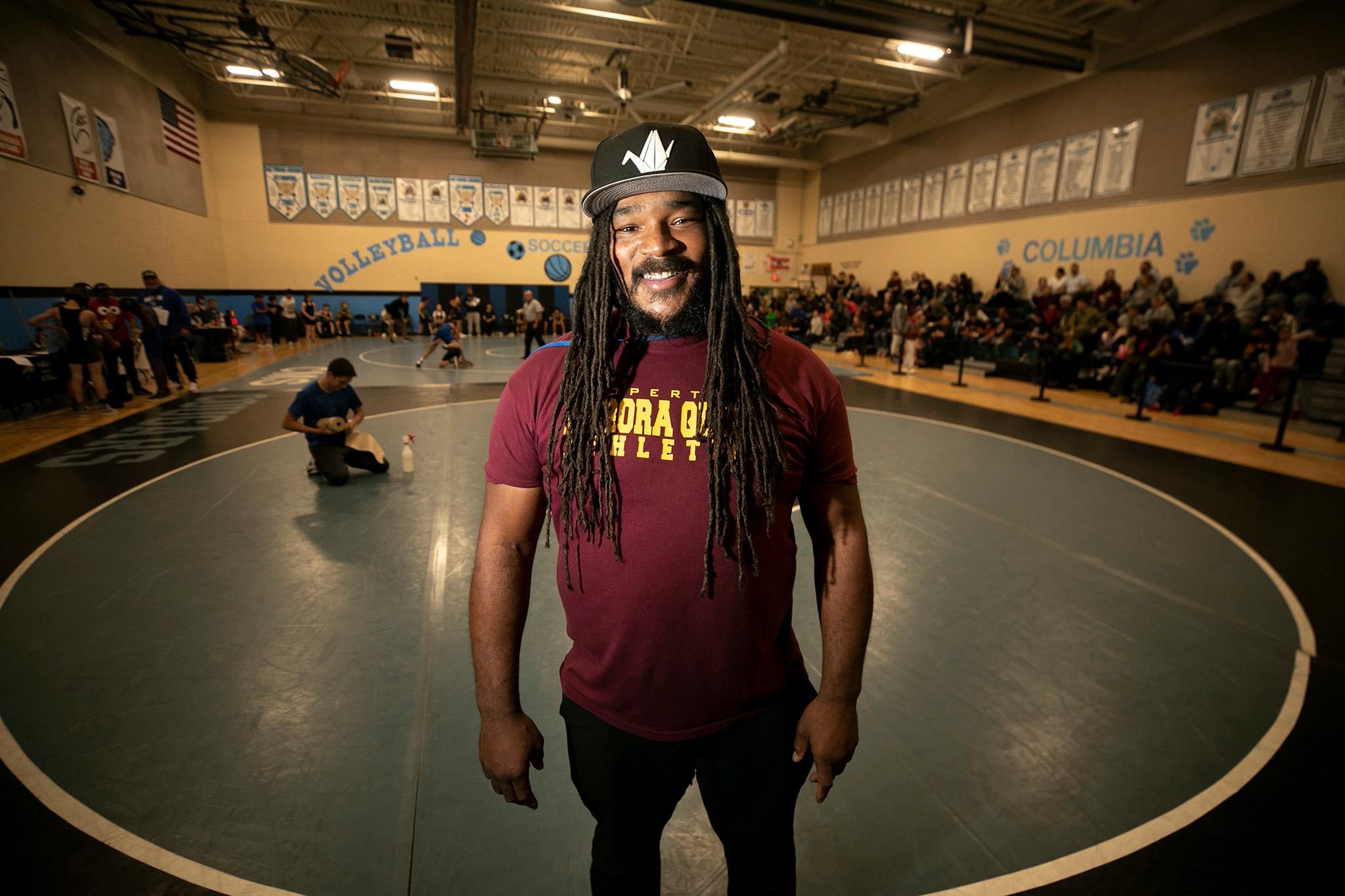
In 2000, Mays began attending Smoky Hill High School and would later become a decorated National Poetry Slam Champion as a member of Slam Nuba, a Denver-based award-winning performance poetry organization.
"Through their work, I've been able to get a better pictorial of human movement in our city," Mays said.
At 'The Mixtape of Black Colorado,' understanding and celebrating being Black in the 90s
As part of History Colorado's Blaxplanation event series, which aims to explore Colorado's Black diaspora outside the context of slavery, Mays was joined by Slam Nuba poets Theo Wilson, Dominique Christina, Bobby LeFebre and Timniyha Owens as part of an event titled "The Mixtape of Black Colorado."
In conjunction with hip-hop's 50th anniversary, the round-robin style showcase engaged the audience in stories by way of spoken word to understand, celebrate and engage with the experiences of being Black in the 90s.
"There is such a cultural impact that I think about with Blackness in that era," Mays said. "For a lot of people, their favorite style of music is 90s R&B and hip-hop. There's so much influence that took place nationwide from a style and musicality standpoint."
"We rooted it in the 90s, but honestly, it's just because those were a lot of our formative years as poets and as artists," said Theo Wilson, an activist, actor and host of History Channel series "I Was There." "A lot of what is Denver was planted as a seed in that time."
'The old Denver and its roots have been left behind'
Wilson -- the grandson of a Tuskegee airman, Denver native and lauded TED speaker -- remembers the first meeting in Five Points that touched on the neighborhood's imminent gentrification.
"I remember the first meeting. In 1997, I went to that meeting," Wilson said. "That time was extremely powerful because there was the shift from Denver being a small town to the big town that it is."
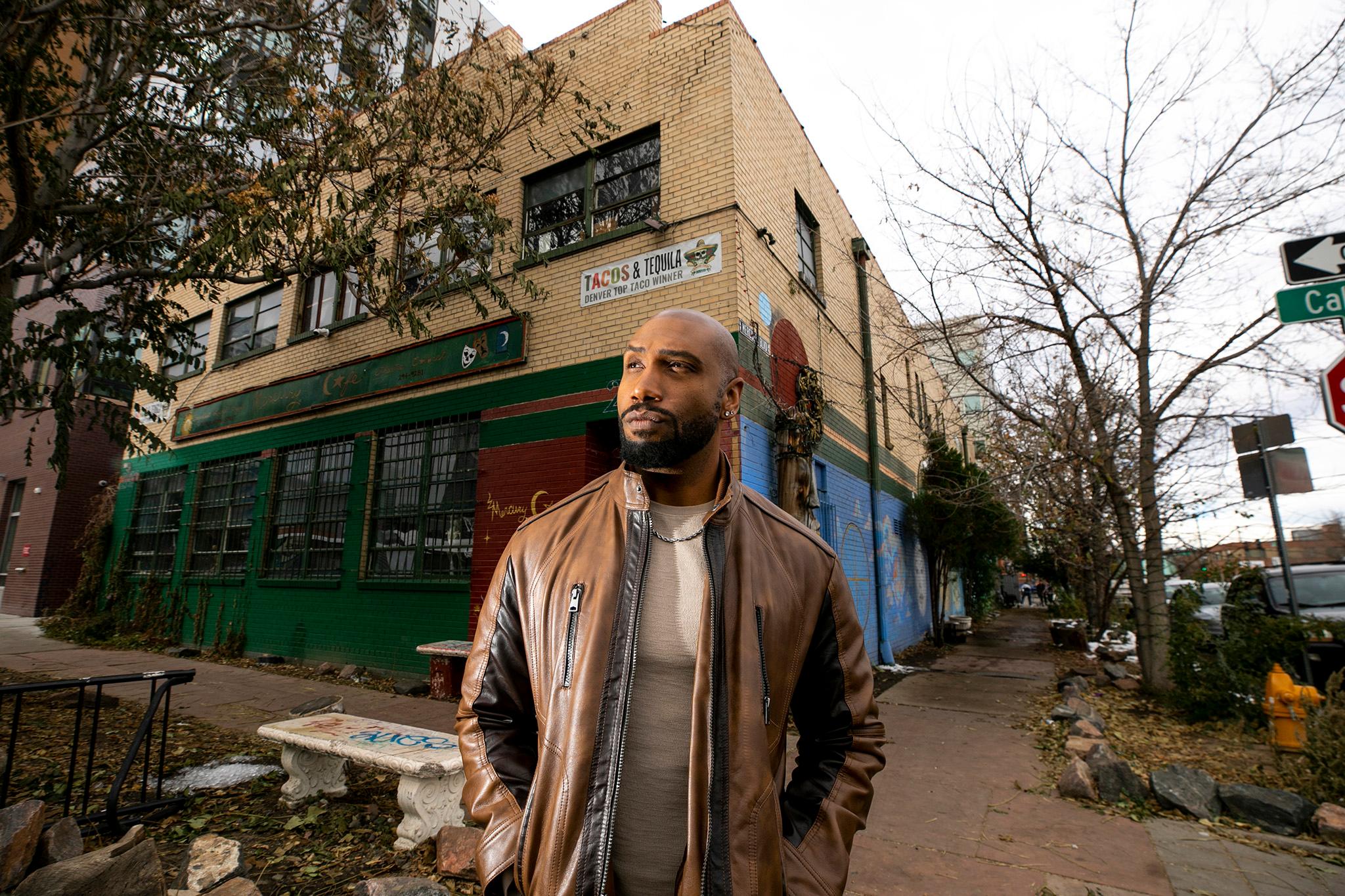
He remembers the opening of DIA, the tenure of former Denver Mayor Wellington Webb and the rise of pro-marijuana activism all having roots in that period of time, setting the city on course for what it looks like today.
"Denver is a victim of its own success in many ways," Wilson said. "The fact that we expanded so quickly, economically from the top and not the bottom. Now that we're a tourist attraction and we have all of this pop culture reference to us, the old Denver and its roots have been left behind."
Ani Steele, program and events manager at History Colorado, initially reached out to Wilson about an idea for the event. When Wilson got the message, he knew exactly who he wanted to invite onto the lineup.
"If it wasn't for [Wilson] I probably would have said 'no' to this event," said Bobby LeFebre, former Colorado poet laureate, Slam Nuba member and a longtime collaborator with Wilson.
LeFebre jokes that his early poetry was actually just bad hip-hop inspired by the genre's pop culture boom in the 90s.
LeFebre credits Ashara Ekundayo, founder and director of Cafe Nuba, a poetry venue that would later become Slam Nuba, as being one of his earliest mentors in the city.
Alongside poets like Wilson and Mays, LeFebre has long documented Denver's rapidly changing landscape in his work, most notably through his production of "Northside" in 2019.
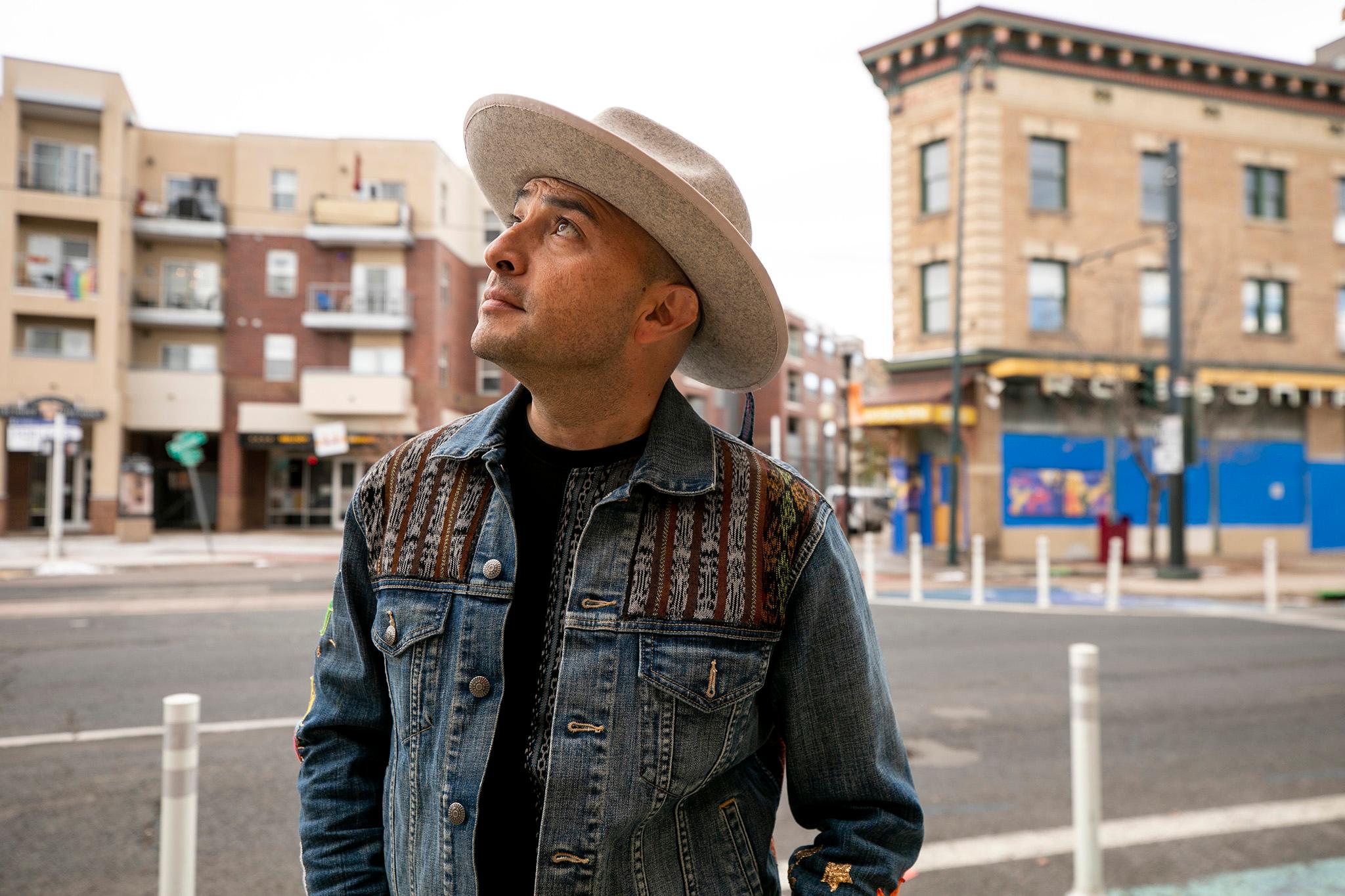
"I spend a lot of my time wrestling with words, trying to understand their impact and their limitations," LeFebre said. "Poetry is sort of a repository from memory. When we're talking about a specific decade or what it was like in those times, throughout history, if you want to understand the people you go to the art, you go to poetry, you go to the things they left behind. It's a documentation of that existence."
LeFebre was a teenager in the 90s, honing his craft alongside Slam Nuba poets and eventually taking those skills as one of Colorado's most well-known spoken word performers.
"The 2000s is where we really saw this golden era of Denver poetry," LeFebre said. "The scene that birthed all of us was rooted in an intense amount of time, energy, attention. We created a community around this."
"It's not necessarily that we are teaching you anything but we are inviting you to consider it from another side," said Dominique Christina, award-winning poet and author as well as the Arts Envoy to Cyprus through the U.S. Department of State. "To stretch your lens and see maybe how that same thing felt to someone else or how that same thing was experienced by someone else. That's always my goal."
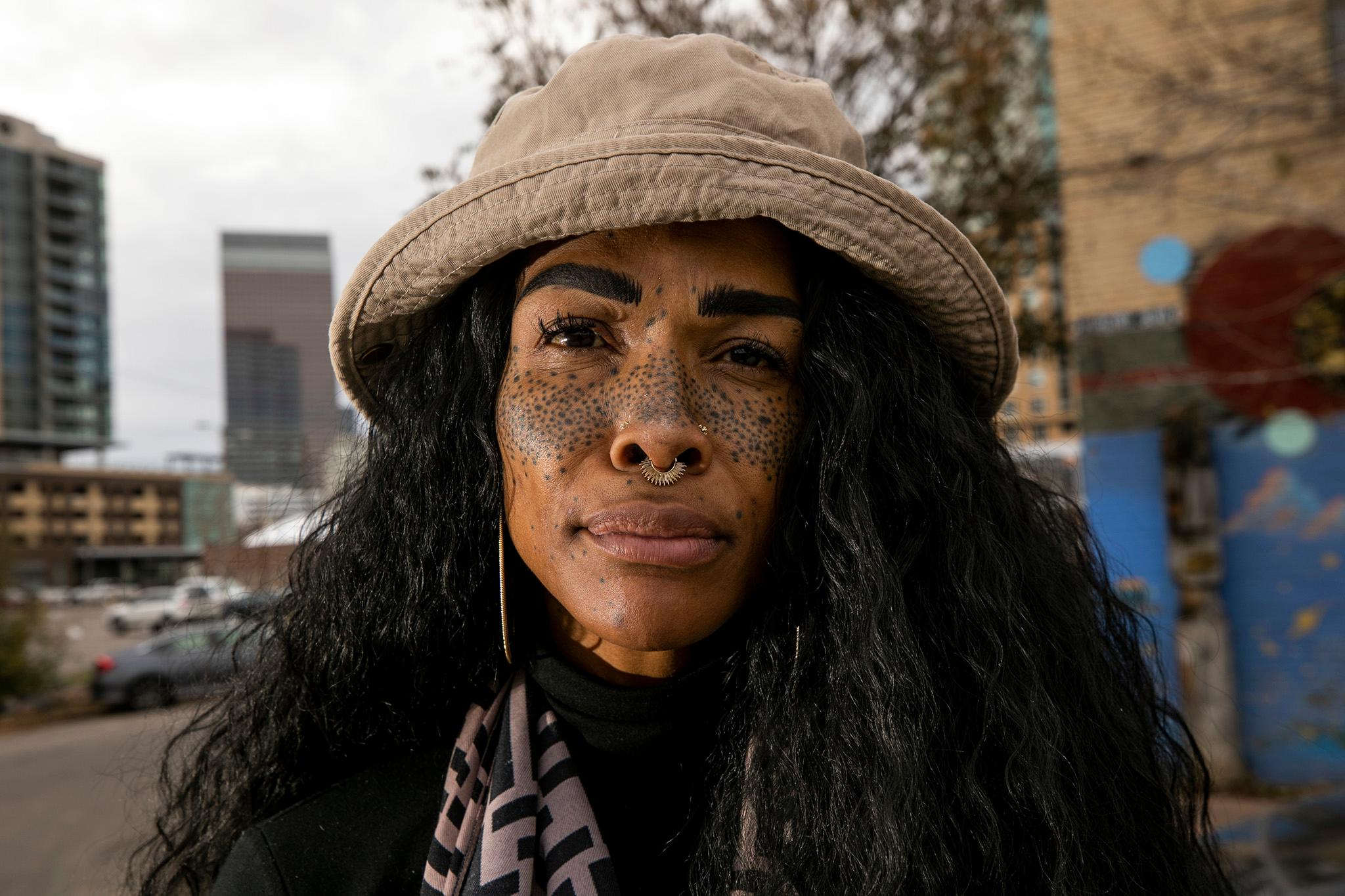
Christina's aunt was one of nine students to desegregate Central High School in Little Rock Arkansas, and much of her work is inspired by her family's history in the Civil Rights Movement. Christina would help curate Cafe Nuba in the early days and has known the other poets in the lineup since they were teens.
"What I really miss most is I think we were very community-oriented," Christina said. "We were family to one another. We were present for each other. We recognized each other across communities. Back in the day you kind of had to walk out of your house ... you had to find each other and be willful about it. I don't know that we are doing that in the same way or as well today."
'We always have the opportunity to be family to one another': Protecting the next generation
At "The Mixtape of Black Colorado Event," after listening to a catalog of poems performed by some of the city's best creative historians, one young audience member asked the panel about Slam "Nubia" for kids.
The crowd let out an "awww," moved by the young boy's curiosity for creative expression.
Mays, who is also a Youth Voice Coordinator for Aurora Public Schools, spends a lot of time around the next generation.
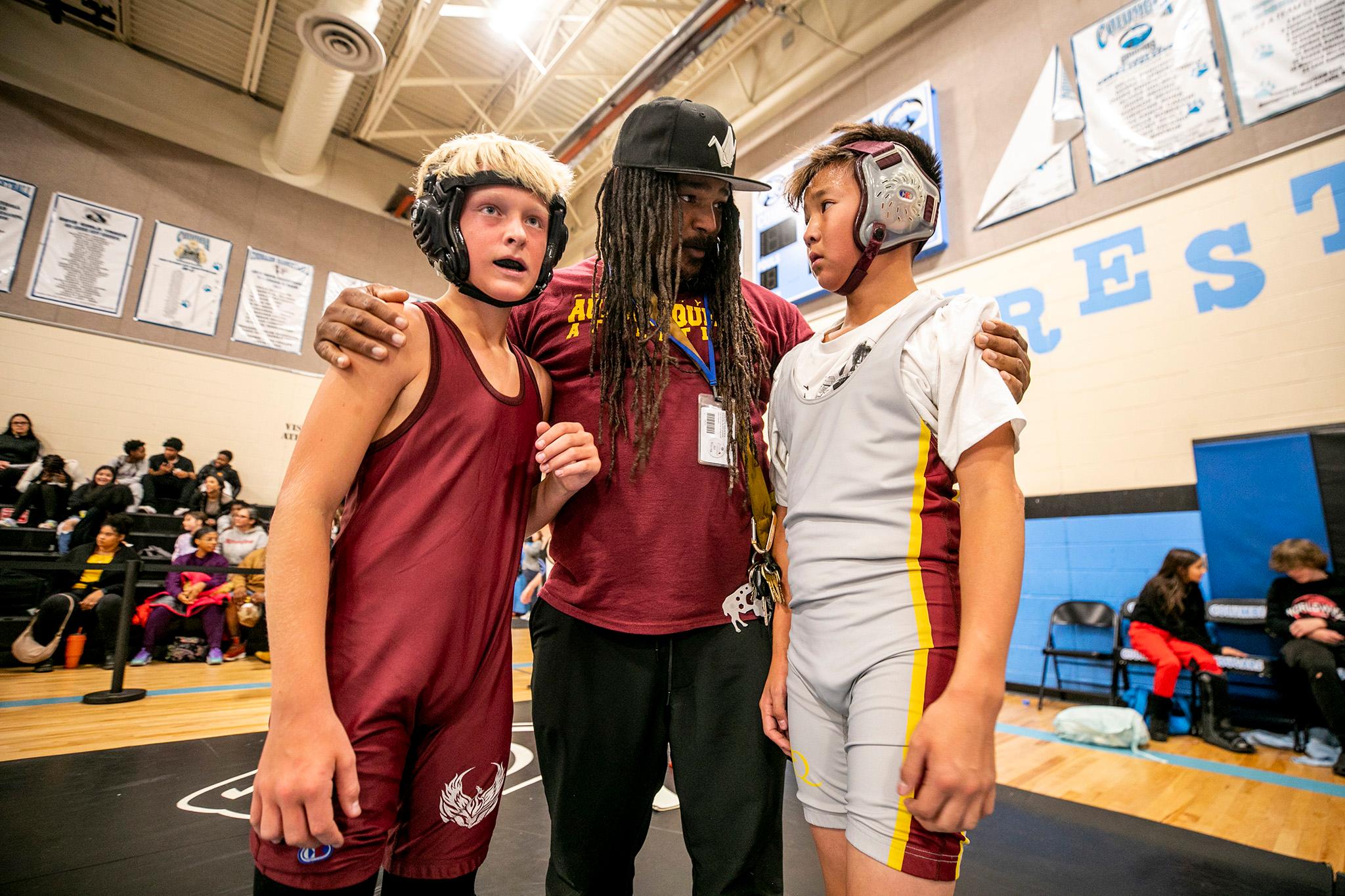
One representative of Aurora's next generation was Elijah McClain, a 23-year-old Black man from Aurora who was killed as he was walking home from a convenience store. His life has most recently returned to the world stage as those involved in his death face trials.
"Thinking about Elijah, a lot of things come up for me," Mays said. "When you watch those tapes, I think about a 16-year-old me getting pulled over."
On a snowy December day, wearing his red and green Smoky Hill high school wrestling warm-up, Mays recalls his first encounter with APD.
"I made some critical errors once I got pulled over," Mays said.
Not realizing that the windows on this mother's car were electric, Mays shut his car off and threw the keys in the passenger seat. Struggling to communicate with the officer through the window, a young Mays tried cracking the door open to explain himself.
"He hopped behind my vehicle, pulled out his firearm ... sits me down on the curb while he called for backup to search my vehicle on a routine traffic stop," Mays said. "There's a moment where I watch that damn tape of [McClain] and ... even talking to you here it's hard not to get emotional. That young man was such a good self-advocate and as a teacher now that's what I teach my kids. Elijah was a better self-advocate than I was."
"Elijah McClain was an artist. So are we. He was one of us," Wilson said. "He was the next generation."
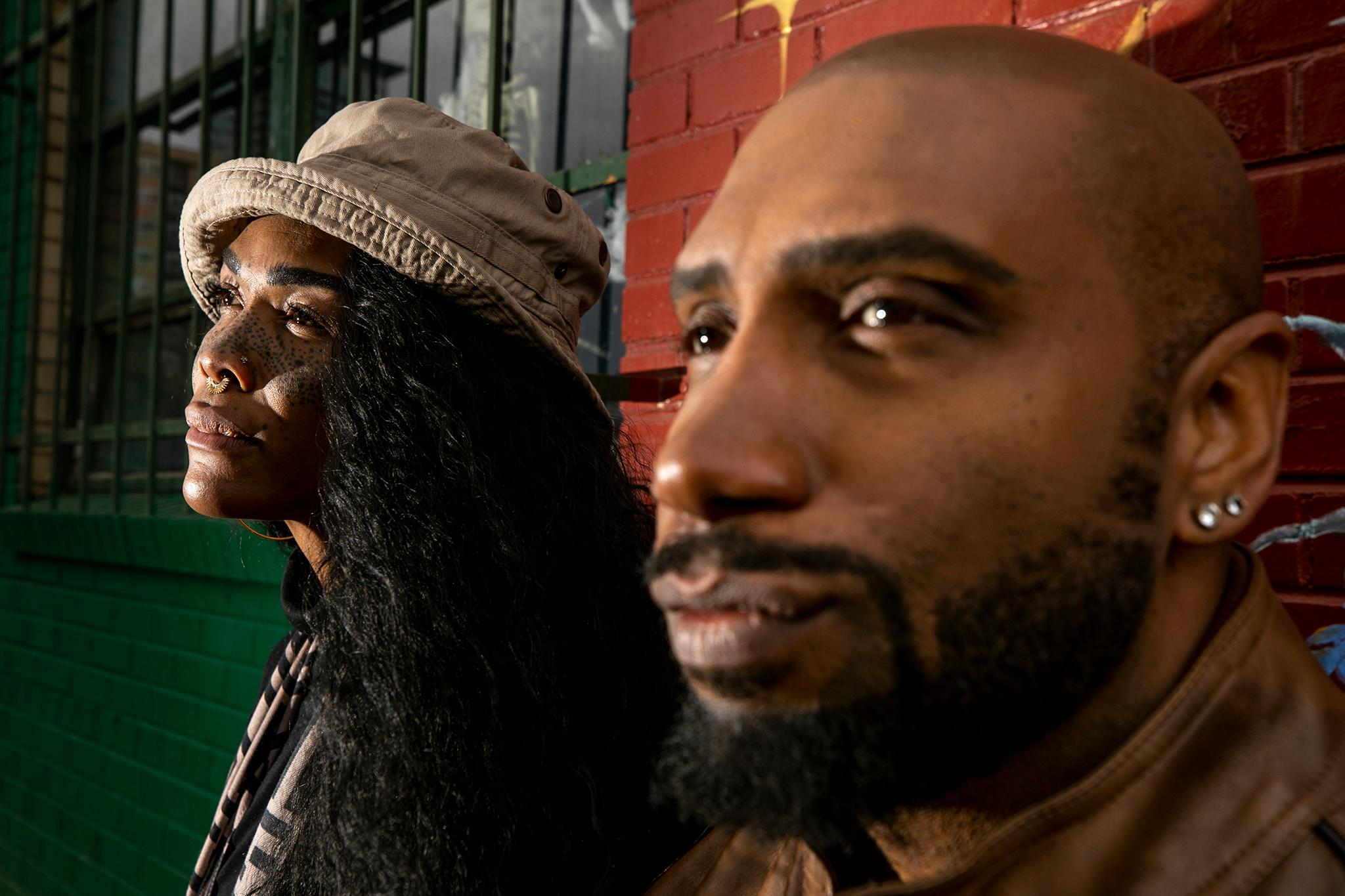
As Christina both processes the little boy's question, about a Slam Nuba for kids, and reflects on what McClain's life symbolizes, she thinks about what the Slam Nuba days meant for Denver's creative community. And what the creative community still has a chance to do.
"I don't think we familied Elijah enough when he was alive," Christina said. "So we have the opportunity to family him now. We all can participate in changing a culture in which we are taking care of each other better. That's what I hope this event can inspire people to consider. We always have the opportunity to be family to one another."

